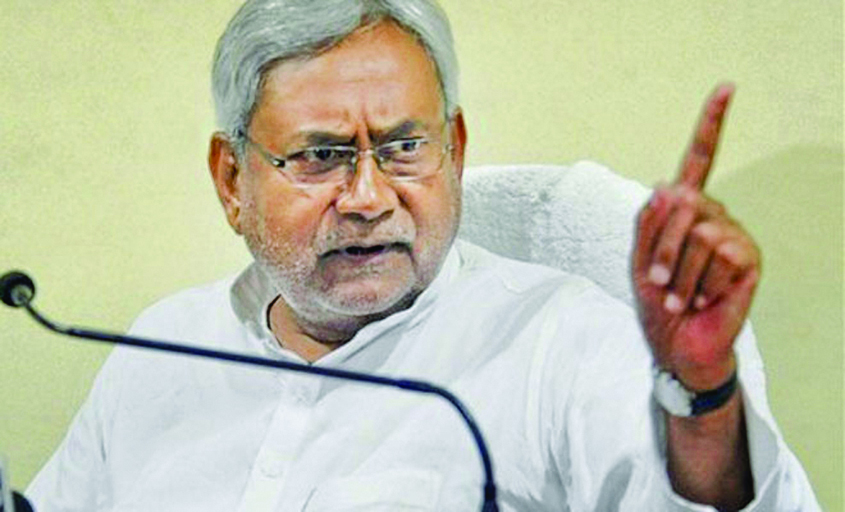Interestingly, Nitish Kumar along with another JDU leader Sharad Yadav and RJD chief Lalu Prasad Yadav and Congress, had made a hue and cry in 2015 over the alleged “withholding” of the caste-based Census data by the NDA government at the Centre. Leaders like M. Karunanidhi and A. Ramadoss too demanded the release of caste-based Census data. The caste data has still not been released as the Centre is yet to compile the data from the states. The admission was made in the Assembly by state rural development minister Shrawan Kumar this week, while giving the government’s reply to the House debate on budgetary demand for his department for 2017-18. The SECC and BPL (Below Poverty Line) list preparation work was conducted in Bihar in 2011, for which the rural development department was the nodal agency. The Union Rural Development Ministry has taken a decision to use the SECC data in all its programmes like MGNREGA, National Food Security Act and DDU Grameen Kaushal Yojana.
Kumar said the state has informed the Centre about the data mix-up and also about the need to include thousands of families which had been left out of the BPL list. The state government, he said, also requested the Centre to allow rectification of these two lapses, but the Centre rejected the proposal in December last year.
Senior BJP leader Nand Kishore Yadav termed mixing up the data as “grave” and said it reflected the “lousy approach” of the Nitish Kumar government. “This Census is not only about compilation of caste data but a number of welfare schemes are linked to it. Government plans welfare schemes for the poor on the basis of this data. It is quite unfortunate that the government has mixed up this data in 2500 panchayats. The Nitish government has lost its credibility,” he said.
In July 2015, the Centre had released the provisional data from SECC 2011 but refrained from making the caste data public. The last such Census was done in 1931.
Sources said the details of the Census can upset the political future of those leaders who resort to caste-based politics. For example, there is speculation that there could be change in the population of OBCs, which, according to the Mandal Commission report (1980), was 52 % of the country’s population but the figure had come down to 41% in 2006 as per estimates of the National Sample Survey Organisation (NSSO). But if the number turns out to be more in the SECC, this group may start demanding more share in government jobs.
The number of backward castes and communities which were about 3,700 according to Mandal Commission, has now increased to more than 5,000 as per the National Commission for Backward Castes (2006).
When contacted, state Rural Development Minister Shrawan Kumar told The Sunday Guardian that the mix-up happened due to “data ka her pher” (altering of data) from one village to another. “We have informed the Centre about it and sought their help to correct it at the earliest,” he said. Asked whether he is getting support from the Centre, he said: “We hope that they will extend support. After all, both Centre and state governments have to complete the exercise,” Kumar added. The minister also informed that the Assembly has requested the Centre to make the caste data public.
The Caste Census had created and uproar in 2011, when the SECC process started, with OBC leaders like Lalu Prasad Yadav, Mulayam Singh Yadav (SP) and Sharad Yadav (JDU) making a strong pitch for inclusion of the caste column in the Census exercise. There were differences within the Congress as well as the BJP over the issue at that time.
The then UPA government finally succumbed to their demand and incorporated caste in the Census. However, the present NDA government declined to release the caste-based data, causing uproar in the opposition camp.

